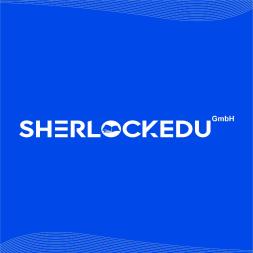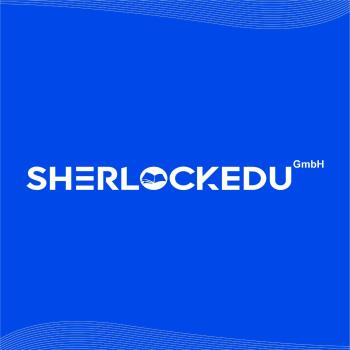
Third-party on-site course
EXPLORING INNOVATIVE LANGUAGE TEACHING METHODS-VIENNA
This dynamic course invites educators to discover cutting-edge approaches designed to invigorate language classrooms. From integrating technology and fostering creativity to personalized instruction and cultural immersion, participants will delve into a diverse array of strategies aimed at enhancing student engagement and proficiency.
17.06.2025
Next upcoming session:
20.10.2025
- 24.10.2025
Multiple locations
Description
DAY 1
- Introduction to Innovative Language Teaching
- Overview of Innovative Language Teaching
- Importance of Innovation in Language Education
- Principles and Approaches to Innovative Teaching Methods
- Technology Integration in Language Teaching
- Gamification and Digital Learning Platforms
- Hands-on Activity: Exploring Language Learning Apps and Tools
DAY 2
- Communicative Language Teaching (CLT) Reimagined
- Understanding Communicative Language Teaching (CLT)
- Adapting CLT for Diverse Learners
- Role of Authentic Materials and Tasks in CLT
- Task-Based Language Teaching (TBLT) Strategies
- Project-Based Language Learning (PBLL) Approaches
- Practical Applications and Lesson Planning
DAY 3
- Creative Language Learning Techniques
- Incorporating Arts and Creativity in Language Lessons
- Using Music, Drama, and Storytelling for Language Acquisition
- Exploring Visual Arts and Multimedia in Language Teaching
- Language Through Culture: Cultural Exploration Activities
- Designing Creative Assignments and Projects
- Collaborative and Interdisciplinary Approaches to Language Learning
DAY 4
- Differentiated Instruction in Language Education
- Understanding Differentiated Instruction (DI) Principles
- Adapting DI for Language Learners of Varying Proficiency Levels
- Strategies for Differentiating Content, Process, and Product
- Individualized Learning Paths and Personalized Learning
- Flexibility and Adaptability in the Classroom
- Assessment and Feedback in Differentiated Language Instruction
DAY 5
- Integrating 21st Century Skills in Language Teaching
- Introduction to 21st Century Skills and Competencies
- Critical Thinking and Problem-Solving in Language Learning
- Collaboration and Communication Strategies
- Creativity and Innovation in Language Education
- Digital Literacy and Information Literacy Skills
- Reflection and Action Planning: Implementing Innovative Language Teaching Methods in Your Classroom
Learning objectives
- Understanding Innovative Language Teaching: Participants will gain an understanding of what innovative language teaching entails, including its principles, approaches, and significance in contemporary education.
- Exploring Technology Integration: Participants will explore various ways to integrate technology into language teaching, including the use of language learning apps, digital platforms, and gamification techniques.
- Adapting Communicative Language Teaching (CLT): Participants will learn how to adapt and reimagine traditional Communicative Language Teaching (CLT) methods to better suit the needs of diverse learners.
- Creative Language Learning Techniques: Participants will explore creative techniques for language learning, such as incorporating arts, music, drama, storytelling, and visual arts into language lessons.
- Differentiated Instruction (DI) Strategies: Participants will learn strategies for implementing differentiated instruction in language education, including adapting content, process, and product to meet the needs of learners at different proficiency levels.
- Integrating 21st Century Skills: Participants will explore the integration of 21st-century skills and competencies, such as critical thinking, problem-solving, collaboration, communication, creativity, and digital literacy, into language teaching.
- Practical Application and Lesson Planning: Participants will engage in hands-on activities, lesson planning exercises, and collaborative projects to apply innovative language teaching methods in real-world classroom settings.
- Assessment and Feedback: Participants will learn strategies for assessing language learning outcomes and providing effective feedback to students in innovative language teaching contexts.
- Reflective Practice: Participants will engage in reflective practice, evaluating their own teaching methods, identifying areas for improvement, and developing action plans for implementing innovative language teaching techniques in their classrooms.
Methodology & assessment
Methodology
Pedagogical Approaches: Teacher training courses typically employ various pedagogical approaches to model effective teaching practices. This may include lectures, interactive seminars, workshops, and hands-on teaching experiences.
Practical Teaching Experience: Practical teaching experience is a fundamental component of teacher training. Participants often have opportunities to observe experienced educators and engage in actual teaching in classrooms or educational settings. Feedback and guidance from mentors are essential during these experiences.
Collaborative Learning: Collaborative learning is often encouraged in teacher training courses. Participants may work in groups to develop teaching materials, lesson plans, and teaching strategies. Collaborative projects can promote the exchange of ideas and best practices.
Reflective Practice: Reflective practice is a crucial aspect of teacher training. Participants are encouraged to reflect on their teaching experiences, analyze their teaching methods, and consider how to improve their practice. Journals, written reflections, and discussions are common tools for fostering reflective practice.
Assessment
Written Assignments: Teacher training courses often include written assignments, such as research papers, case studies, or essays, on topics related to education and teaching methods.
Examinations: Some teacher training courses may include written examinations to assess participants' understanding of pedagogical theories, educational psychology, and other relevant subjects.
Professionalism and Communication: Assessment may also consider participants' professionalism, communication skills, and ability to collaborate with colleagues, parents, and students.
Feedback and Self-Assessment: Regular feedback from mentors and self-assessment are crucial components of teacher training assessment. Participants are encouraged to use feedback to improve their teaching skills
Pedagogical Approaches: Teacher training courses typically employ various pedagogical approaches to model effective teaching practices. This may include lectures, interactive seminars, workshops, and hands-on teaching experiences.
Practical Teaching Experience: Practical teaching experience is a fundamental component of teacher training. Participants often have opportunities to observe experienced educators and engage in actual teaching in classrooms or educational settings. Feedback and guidance from mentors are essential during these experiences.
Collaborative Learning: Collaborative learning is often encouraged in teacher training courses. Participants may work in groups to develop teaching materials, lesson plans, and teaching strategies. Collaborative projects can promote the exchange of ideas and best practices.
Reflective Practice: Reflective practice is a crucial aspect of teacher training. Participants are encouraged to reflect on their teaching experiences, analyze their teaching methods, and consider how to improve their practice. Journals, written reflections, and discussions are common tools for fostering reflective practice.
Assessment
Written Assignments: Teacher training courses often include written assignments, such as research papers, case studies, or essays, on topics related to education and teaching methods.
Examinations: Some teacher training courses may include written examinations to assess participants' understanding of pedagogical theories, educational psychology, and other relevant subjects.
Professionalism and Communication: Assessment may also consider participants' professionalism, communication skills, and ability to collaborate with colleagues, parents, and students.
Feedback and Self-Assessment: Regular feedback from mentors and self-assessment are crucial components of teacher training assessment. Participants are encouraged to use feedback to improve their teaching skills
Certification details
- Completion Certificate: Upon successfully completing a teacher training course, you will typically receive a completion certificate or diploma from the training provider or institution. This certificate acknowledges your participation and successful completion of the training.
- Course Duration: The duration of teacher training courses can vary widely. Some may be short-term workshops or seminars, while others may be more comprehensive and span several weeks or months. The certificate may indicate the total number of hours or credits completed.
- Content and Curriculum: The certificate should outline the key topics, content, and skills covered during the training. This information helps future employers or educational institutions understand the scope of your training.
- Credits or Continuing Education Units (CEUs): In some cases, teacher training courses may offer academic credits or Continuing Education Units (CEUs). These credits can be valuable for professional development and may be recognized by educational authorities or institutions.
- Language of Instruction: If the teacher training course is conducted in a language other than your native language, the certificate may indicate your language proficiency level or the language in which the training was delivered.
- Evaluation and Assessment: Teacher training courses often involve assessments or evaluations of your performance. The certificate may include information about your performance in the training, such as grades or evaluations.
- Recognition and Accreditation: Ensure that the teacher training course and the institution providing it are recognized and accredited by relevant educational authorities or professional bodies. This can affect the credibility and transferability of your certificate.
- Pedagogical Practices: If the training includes practical teaching experience or classroom observations, the certificate may highlight your proficiency in specific pedagogical practices or teaching methodologies.
Pricing, packages and other information
-
Price:400Euro
Additional information
-
Language:English
-
Target audience ISCED:Primary education (ISCED 1)Lower secondary education (ISCED 2)Upper secondary education (ISCED 3)
-
Target audience type:TeacherHead Teacher / PrincipalTeacher Educator
-
Learning time:25 hours or more
Upcoming sessions
Past sessions
More courses by this organiser

On-site
DIGITAL HORIZONS - EQUIPPING EDUCATORS FOR TECHNOLOGY-INTEGRATED LEARNING-ANTALYA
Next upcoming session
-
Multiple locations

On-site
DIGITAL HORIZONS - EQUIPPING EDUCATORS FOR TECHNOLOGY-INTEGRATED LEARNING-ROME
Next upcoming session
-
Multiple locations


